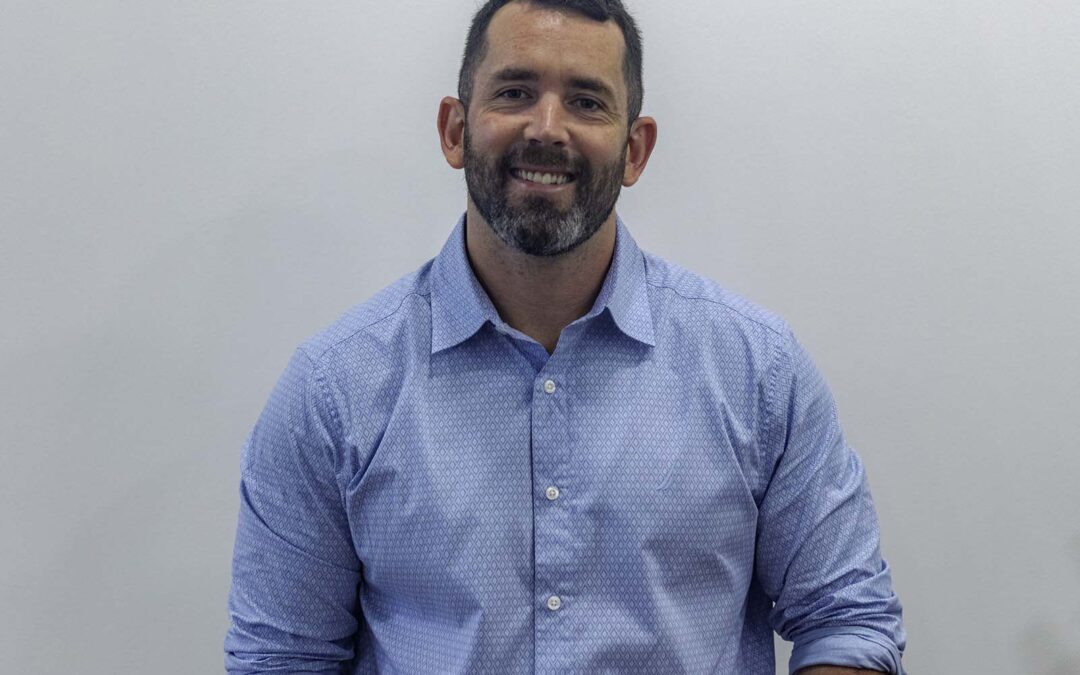Understanding the Philosophy Behind 12 Step Programs
The twelve-step philosophy was created in 1935 when Bill Wilson and Dr. Bob Smith started Alcoholics Anonymous (AA) in Akron, Ohio. Their personal battles with alcohol addiction drove them to come up with a groundbreaking method for recovery that focused on helping each other and spiritual values.
The Three Core Beliefs
The main idea behind this philosophy is based on three key beliefs:
- Addiction creates an unmanageable life that requires surrendering to a higher power
- Recovery depends on honest self-examination and making amends
- Helping others achieve sobriety strengthens personal recovery
A Spiritual Foundation
This spiritual foundation doesn’t require traditional religious beliefs – your higher power can be the group itself, nature, or any source of strength beyond yourself. The emphasis lies in acknowledging that willpower alone isn’t enough to overcome addiction.
The Influence of AA’s Approach
The success of AA’s approach has inspired adaptations for numerous other challenges:
- Narcotics Anonymous (NA)
- Gamblers Anonymous (GA)
- Overeaters Anonymous (OA)
- Sex Addicts Anonymous (SAA)
- Codependents Anonymous (CoDA)
Each group maintains the original twelve steps while tailoring the language and focus to specific addictions or behaviors. This adaptability has made twelve-step programs a cornerstone of recovery support worldwide, helping millions find a path to lasting sobriety through shared experience and mutual aid.
At Insight Recovery Treatment Center, we recognize the proven effectiveness of twelve-step principles in supporting long-term recovery from various forms of addiction.
The Twelve Steps Explained: A Roadmap to Recovery
The 12 steps create a structured path toward healing and personal transformation. Here’s what each step entails:
- Powerlessness Recognition: Acknowledging your inability to control addiction
- Higher Power Belief: Finding strength in something greater than yourself
- Surrender: Making a decision to turn your life over to this higher power
- Moral Inventory: Creating an honest list of personal shortcomings
- Admission: Sharing your inventory with another person
- Readiness: Becoming willing to address character defects
- Humility: Asking for help in removing shortcomings
- Amends List: Identifying those harmed by your addiction
- Direct Amends: Making peace with others when possible
- Continued Inventory: Maintaining self-awareness daily
- Spiritual Connection: Developing conscious contact with your higher power
- Service: Helping others in their recovery journey
The steps address addiction’s impact on your:
- Physical Well-being: Breaking dependency patterns, which can be supported through day treatment programs
- Mental Health: Processing trauma and emotional wounds, often requiring dual diagnosis treatment
- Spiritual Growth: Building meaning and purpose
- Social Connections: Rebuilding relationships and trust
Each step builds upon the previous, creating a foundation for lasting recovery. Working through these steps with a sponsor provides guidance and accountability in your healing journey.
If you’re interested in exploring professional help, consider reaching out through our contact page for more information about our programs and how we can assist you on this journey.
Peer Support: The Heart of 12 Step Programs
Peer support is the foundation of 12 step programs, creating a strong network of people who have similar struggles and successes. Regular meetings offer a safe, non-judgmental space where participants can share their stories, difficulties, and victories with others who genuinely understand their journey. This peer support plays a crucial role in the recovery process.
Structured Meetings with Acceptance
These meetings follow a structured format while maintaining an atmosphere of acceptance and mutual support. You’ll find:
- Daily/weekly gatherings in convenient locations
- Open meetings welcoming family members and supporters
- Closed meetings exclusively for those in recovery
- Speaker meetings featuring personal recovery stories
The Role of Sponsors in Recovery
The sponsorship system is a key element of 12 step recovery. A sponsor acts as a personal mentor who has:
- Successfully worked through the 12 steps
- Maintained sustained recovery
- Developed practical strategies for managing triggers
- Built a strong foundation in program principles
Your sponsor offers personalized guidance, assisting you in:
- Navigating difficult situations
- Understanding program literature
- Effectively working through the steps
- Establishing accountability in recovery
A Comprehensive Support System
The combination of group meetings and individual sponsorship creates a strong support system that addresses both immediate challenges and long-term recovery goals. This dual approach helps participants build lasting connections while developing practical tools for maintaining sobriety. Such structured peer support not only aids in individual recovery but also fosters a sense of community among participants.
Integrating Professional Treatment with 12 Step Programs at Insight Recovery Treatment Center
At Insight Recovery Treatment Center, we combine evidence-based clinical treatments with the proven support structure of 12 step programs. This integrated approach creates a comprehensive recovery path tailored to each client’s needs.
Our treatment model includes:
- Cognitive Behavioral Therapy (CBT) sessions that align with 12 step principles, helping clients identify triggers and develop healthy coping mechanisms
- Individual counseling that reinforces step work and personal growth
- Group therapy sessions complementing 12 step meetings
- Medication-Assisted Treatment (MAT) when appropriate, supported by 12 step participation
The clinical team works closely with local 12 step groups to create seamless care transitions. Therapists help clients process their 12 step experiences during individual sessions, while group therapy reinforces concepts like accountability and personal inventory.
Our integrated approach addresses:
- Physical healing through medical supervision and MAT
- Psychological recovery via CBT and behavioral therapy
- Spiritual growth through 12 step participation
- Social rehabilitation through group work and peer support
This combination of professional treatment and 12 step wisdom provides clients with multiple recovery tools. Clients learn to apply clinical insights to their step work while bringing 12 step principles into their therapy sessions.
In addition to our core treatment offerings, we also provide sober living options which work in tandem with our outpatient rehab programs. This structure not only aids in lasting addiction recovery but also facilitates a smoother transition back into daily life.
For those requiring more intensive support, our half-day treatment program offers flexibility while still delivering comprehensive care. Furthermore, we also specialize in [dual diagnosis treatment](https://insightrecoverytc.com/programs/dual-diagnosis-treatment), addressing both mental health issues and substance use disorders concurrently for a more holistic recovery experience.
Evidence Supporting the Effectiveness of 12 Step Programs in Promoting Long-Term Recovery
Research consistently demonstrates the positive impact of 12 step programs on long-term recovery outcomes. A comprehensive study published in the Journal of Substance Abuse Treatment found that individuals who actively participated in 12 step meetings showed:
- 40-50% higher abstinence rates after one year
- Significant reduction in depression and anxiety symptoms
- Enhanced social support networks critical for sustained recovery
Project MATCH, one of the largest addiction treatment studies, revealed that 12 step facilitation therapy matched or exceeded other treatment approaches in maintaining sobriety. The research tracked participants for three years, documenting:
- Higher rates of complete abstinence
- Reduced frequency of substance use
- Improved psychological functioning
- Better social relationships
A meta-analysis of 35 studies highlighted the cost-effectiveness of 12 step programs, showing they produce similar or better outcomes compared to professional interventions at a fraction of the cost. The research particularly emphasized the value of:
- Regular meeting attendance
- Working with a sponsor
- Active participation in group activities
- Service to others in recovery
These findings align with clinical observations at treatment centers nationwide, where patients combining professional treatment with 12 step participation demonstrate stronger recovery outcomes and reduced relapse rates.
Exploring Variations and Adaptations of 12 Step Programs to Suit Diverse Needs
The 12-step recovery model has evolved beyond its original focus on alcohol addiction to address various forms of substance use and behavioral challenges. These specialized programs maintain the core principles while adapting to specific needs:
Common 12-Step Program Variations:
- Narcotics Anonymous (NA) – Focuses on drug addiction recovery
- Gamblers Anonymous (GA) – Addresses compulsive gambling
- Overeaters Anonymous (OA) – Helps with food-related issues
- Sex Addicts Anonymous (SAA) – Supports recovery from sexual addiction
- Codependents Anonymous (CoDA) – Assists with relationship dependencies
Each adaptation uses language and examples relevant to its specific focus while preserving the fundamental 12-step structure. These programs create safe spaces where individuals can connect with others facing similar challenges. The shared experiences in specialized groups help members feel understood and supported in their unique recovery journeys.
At Insight Recovery Treatment Center, we help clients find the most appropriate 12-step program to complement their treatment plan, recognizing that different addictions require tailored approaches to recovery.






